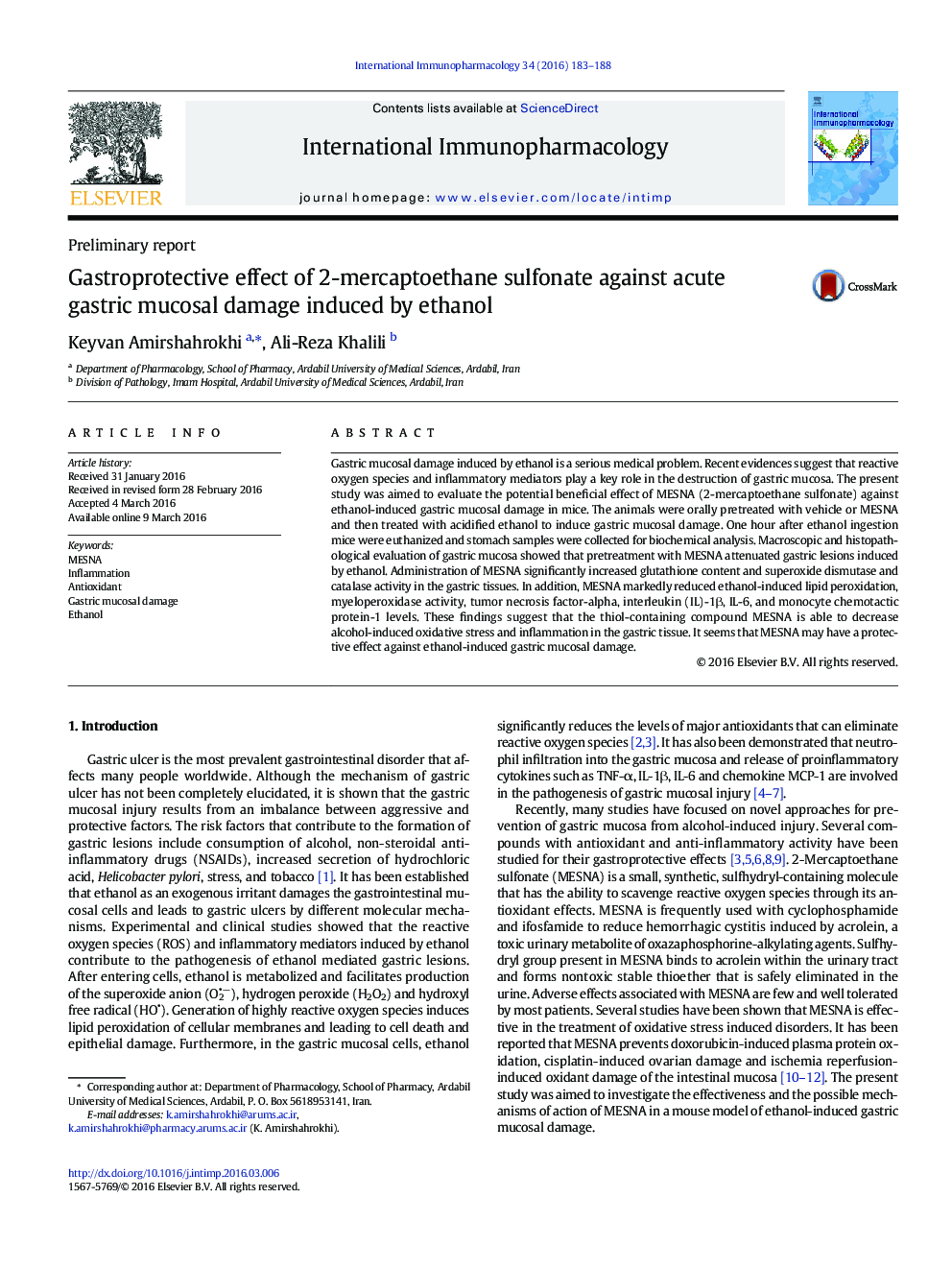| Article ID | Journal | Published Year | Pages | File Type |
|---|---|---|---|---|
| 2540275 | International Immunopharmacology | 2016 | 6 Pages |
•MESNA pretreatment reduced ethanol-induced gastric injury in mice.•Gastroprotective effect of MESNA was confirmed by macro and microscopic examination.•MESNA significantly increased the levels of GSH, CAT and SOD in the gastric tissues.•MESNA reduced ethanol-induced lipid peroxidation and MPO activity.•MESNA reduced ethanol-induced TNF-α, IL-1β, IL-6 and MCP-1 levels.
Gastric mucosal damage induced by ethanol is a serious medical problem. Recent evidences suggest that reactive oxygen species and inflammatory mediators play a key role in the destruction of gastric mucosa. The present study was aimed to evaluate the potential beneficial effect of MESNA (2-mercaptoethane sulfonate) against ethanol-induced gastric mucosal damage in mice. The animals were orally pretreated with vehicle or MESNA and then treated with acidified ethanol to induce gastric mucosal damage. One hour after ethanol ingestion mice were euthanized and stomach samples were collected for biochemical analysis. Macroscopic and histopathological evaluation of gastric mucosa showed that pretreatment with MESNA attenuated gastric lesions induced by ethanol. Administration of MESNA significantly increased glutathione content and superoxide dismutase and catalase activity in the gastric tissues. In addition, MESNA markedly reduced ethanol-induced lipid peroxidation, myeloperoxidase activity, tumor necrosis factor-alpha, interleukin (IL)-1β, IL-6, and monocyte chemotactic protein-1 levels. These findings suggest that the thiol-containing compound MESNA is able to decrease alcohol-induced oxidative stress and inflammation in the gastric tissue. It seems that MESNA may have a protective effect against ethanol-induced gastric mucosal damage.
Graphical abstractFigure optionsDownload full-size imageDownload as PowerPoint slide
